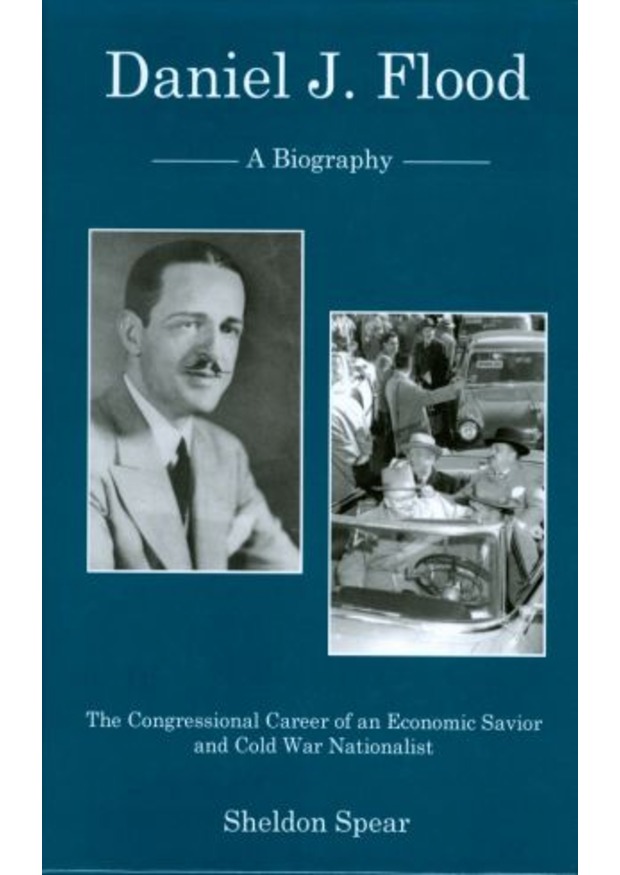The Congressional Career of an Economic Savior and Cold War Nationalist
This book examines the public life of the theatrical politician with the waxed mustache and flamboyant wardrobe. Flood’s seniority on two Appropriations subcommittees enabled him to funnel funds to Pennsylvania’s economically distressed 11th Congressional District. Intensely interested in foreign affairs, he surpassed most of his colleagues in the strength of his anti-Communist rhetoric. His long career ended in resignation after he was implicated in corruption allegations.
Pensions for coal miners suffering from “black lung” disease and relief and recovery funds for flood victims of the 1972 “Agnes” disaster comprise two of Flood’s most notable accomplishments. His constituents were so appreciative that they named a number of buildings and other facilities after him while he was still in office. By contrast, they usually overlooked or were unaware of his more negative qualities.
Flood played the Eastern European card often, such as sponsoring observances of “Captive Nations Week.” The emphasis on Eastern Europe helped him politically, given the demographics of his district. But permanent American possession of the Panama Canal was his overriding concern. He attributed the Panamanian desire to undo this to a grand Soviet strategy to destroy U.S. hegemony in the Western Hemisphere. His debating strategy on this issue could be hysterical, even McCarthyite, as he accused foes of his position of being Communist dupes.
Flood left office after his indictment and trial on bribery, conspiracy, and perjury charges. The trial resulted in a mistrial (a hung jury), after which the infirm congressman accepted a plea agreement—a sentence of one year’s probation. It is difficult to discern Flood’s guilt or innocence, but his historical reputation rests on this point as much, if not more, than on his undeniable achievements.
Flood was a major political figure. Although several scholars have touched on aspects of his career, Sheldon Spear has written a long overdue, full-scale biography based largely on the congressman’s voluminous papers at King’s College.
About the Author: Now retired from the history department of Luzerne County Community College, Sheldon Spear is an independent scholar.













